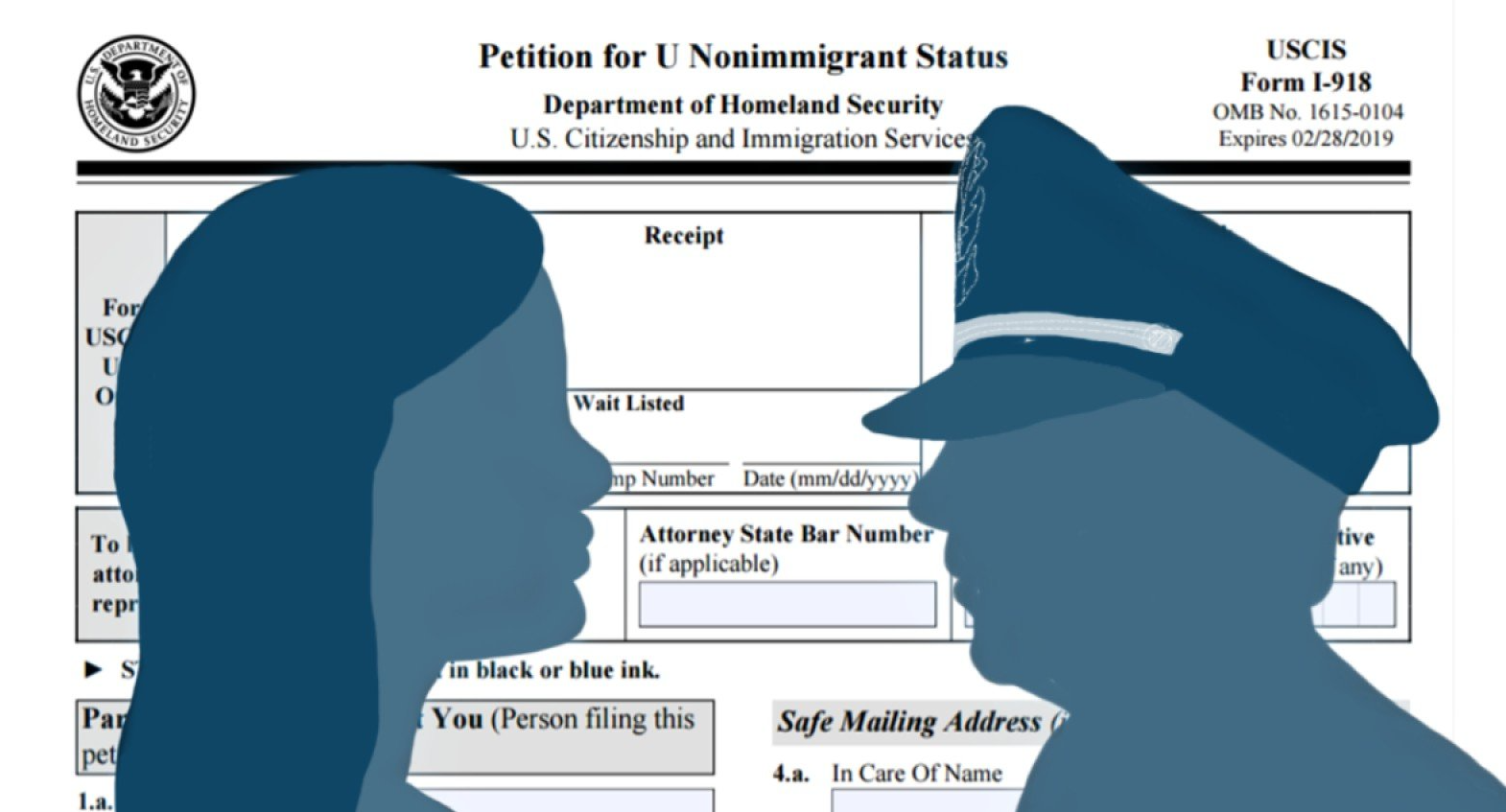What happens after I submit a U-visa application?
Santos Lloyd Law Team • March 11, 2022

Click here to read this article in Spanish
For information on what a U visa
is and who is eligible for it, please read here. This blog post discusses what happens after you submit the U visa petition.
How long do I have to wait for the petition to be decided?
As of June 2021, the wait time for a decision on the U visa is approximately 5 years. The wait time will likely be longer for those filing in 2022 because there is a large backlog of U-visa petitions awaiting adjudication.
Why is the wait time so long?
USCIS caps the number of U visas each year at 10,000, even though tens of thousands of applicants apply every year. Once the cap is reached, the remaining applicants are placed on a waiting list. This creates a backlog that stretches back approximately five years.
Can I work while my U visa petition is pending?
Because of the backlog in pending applications, USCIS may grant work permits for those awaiting a final decision on their U visa petitions. Once the work permit is granted, you can work while awaiting the final decision. The work permit lasts for four years but can be extended until the U visa petition is decided.
Am I subject to deportation while my application is pending?
Similar to the work permit, applicants can apply for “deferred action” lasting for four years, but it can be extended until the U visa petition is decided. “Deferred action” is not an immigration status, but it allows USCIS to give you a work permit so you can work legally while awaiting decision on your U visa petition. With deferred action, the government deems you a low priority for deportation, making deportation less likely.
How long will it take for my work permit and deferred action to be granted?
It can take several years before your application for a work permit/deferred action is granted. This is because the U visa backlog is so long. As a result, you will not have a work permit or any legal status or protection from deportation while the work permit/deferred action applications are pending.
If my U visa application gets denied, will I be deported?
If USCIS denies your request for a U visa, then your status is still the same as it was before you applied. The denial will not automatically trigger removal proceedings.
If my U visa petition is approved, when can I apply for lawful permanent residence (a green card)?
You must have a U visa for three years before you can apply for lawful permanent residence. To be eligible for lawful permanent residence, the following criteria must be satisfied:
- You have been physically in the U.S. for a “continuous period” of at least three years since the date your U visa was granted. A “continuous period” means that you cannot leave the U.S. for 90 days in a row or for 180 days in total during the three years.
- You cooperated with law enforcement if they asked you to cooperate with the criminal investigation or prosecution after the U visa was granted.
- Your continued presence in the United States is “justified on humanitarian grounds, to ensure family unity, or it is in the public interest.” This is a balancing test left to the government’s discretion. But, if you do not have a criminal history or significant immigration violations in the past, it will likely be considered “in the public interest” for you to continue to remain in the U.S.
How long will it take USCIS to decide my application for a green card?
It will take approximately two years, but timelines are subject to change. While you wait for the decision, USCIS will extend your U visa status and work permit.
If you would like to know more about applying for a U visa, please contact Santos Lloyd Law Firm and our talented team of experienced immigration attorneys will be able to assist you.
This blog is not intended to be legal advice and nothing here should be construed as establishing an attorney client relationship. Please schedule a consultation with an immigration attorney before acting on any information read here.
This Facebook widget is no longer supported.
Similar Posts

The U nonimmigrant status (U visa) offers vital protection and legal relief to victims of certain crimes who have suffered mental or physical abuse and are willing to assist law enforcement in the investigation or prosecution of the crime. U visa recipients are granted a work authorization card and can live and work legally in the United States for up to four years, with a path to lawful permanent residency (green card) after having a U visa for three years. The U visa serves as a beacon of hope for survivors of crime who courageously step forward to help law enforcement while navigating their own recovery. Understanding the eligibility criteria and gathering the right documentation is essential to building a strong case. To qualify for a U visa, an applicant must meet all of the following criteria: 1. Victim of a Qualifying Crime You must have been a victim of a qualifying criminal activity , such as: Domestic violence Sexual assault Human trafficking Kidnapping Felonious assault Extortion Witness tampering Other serious offenses A full list of qualifying crimes is provided by U.S. Citizenship and Immigration Services under INA § 101(a)(15)(U). See also: https://www.uscis.gov/humanitarian/victims-of-criminal-activity-u-nonimmigrant-status . 2. Suffered Substantial Physical or Mental Abuse You must demonstrate that you suffered substantial harm as a result of the crime. This may include: Physical injuries Psychological trauma Lasting emotional distress 3. Helpful to Law Enforcement You must be, have been, or are likely to be helpful in the investigation or prosecution of the crime. This includes: Reporting the crime to authorities Cooperating with police or prosecutors Providing information that aids law enforcement efforts A law enforcement certification (Form I-918, Supplement B) is required as proof of this cooperation. 4. The Crime Occurred in the U.S. or Violated U.S. Laws The criminal activity must have: Taken place in the U.S., its territories, or possessions, and Violated U.S. federal, state, or local laws Applicants must also be admissible to the United States. If you are not, based on your immigration history, you may request a waiver using Form I-192 (Application for Advance Permission to Enter as a Nonimmigrant) . Certain qualifying family members may be included in your U visa petition: If you are under 21 years old: Your parents, unmarried siblings under 18, spouse, and children may be eligible to apply with you. If you are 21 years or older: Your spouse and children may qualify to apply with you. Each derivative must meet specific requirements and file appropriate forms. If you have any questions or would like to know more about the U visa eligibility requirements, contact our office to schedule a consultation with one of our experienced immigration attorneys.

U.S. Citizenship and Immigration Services (USCIS) has announced a major change to the H-1B cap selection process. Under a final rule issued on December 29, 2025, USCIS will replace the long-standing random H-1B lottery with a wage-weighted selection system that favors higher-paid and more complex positions. The rule is scheduled to take effect on February 27, 2026 , just ahead of the fiscal year 2027 H-1B cap registration season, unless delayed by legal challenges. If implemented, USCIS is expected to release additional guidance explaining how employers must submit registrations under the revised process. This change marks one of the most significant reforms to the H-1B program in recent years. Up until 2025, all registrations were treated equally once the annual cap was reached. Under the new system, selection odds will be tied to wage levels based on the U.S. Department of Labor’s Occupational Employment and Wage Statistics data. All H-1B registrations will still be placed into a single selection pool, but registrations tied to higher wage levels will receive multiple entries into that pool, increasing their likelihood of selection. Lower wage levels will receive fewer entries, making selection less likely but not impossible. H-1B wage levels are not determined solely by salary. Each wage level reflects the complexity of the job, the level of responsibility involved, and the education and experience required . Entry-level positions involving routine duties and close supervision are generally classified at the lowest wage level, while positions requiring independent judgment, advanced skills, and significant responsibility fall into higher wage levels. The highest wage level is reserved for roles that involve expert knowledge, strategic decision-making, and substantial leadership or technical authority. USCIS is expected to closely scrutinize selected petitions to ensure that the wage level claimed during registration is supported by the job duties and salary offered in the petition. Any discrepancies between the registration and the petition may result in requests for evidence, denials, or enforcement action. With the elimination of the purely random lottery, employers should begin preparing early by carefully evaluating job descriptions, wage levels, and overall H-1B strategy. Accurate classification and thoughtful planning will be essential under this new wage-based selection system. If you are an employer considering H-1B sponsorship, or a foreign professional wondering whether your position may qualify under the new wage-based system, consulting with experienced immigration counsel is more important than ever. Santos Lloyd Law is actively advising clients on H-1B cap registrations and strategy under the new rules. To discuss your options or determine whether you may qualify, contact our office to schedule a consultation.

During the recent administration there has been an increase in issuance of Requests for Evidence for EB-1A petitions for those of Extraordinary Ability. A Request for Evidence is a request that is made by USCIS that should explain how the evidence is deficient in proving the criteria argued and what additional evidence needs to be provided by the applicant to meet the criteria. EB-1A petitions are already normally subject to higher scrutiny because their approval is the first step needed to apply for Lawful Permanent Residence or a green card. USCIS normally requires not just evidence but that the evidence be provided with context and information to show why it matters in a particular field. For example, if you were providing evidence of your membership in an organization that requires outstanding achievements of its members, just providing evidence of the membership is not enough. You must explain what that membership is and provide background information on the organization granting the membership. You also need to provide evidence on the criteria that is used to select the members, information on those who select the members to show that they are recognized experts, other documentation such as articles about the membership organization to show its importance, and any other relevant evidence and background information to show that the criteria is met. A request for evidence being issued prior to the current administration was not uncommon, but in the current climate it is more surprising to not receive a request for evidence for this type of case. It is important to remember that a request for evidence is not a denial. Depending on the validity of the information in the request and the substance some Requests for Evidence can be overcome, and the case be approved. It is important to carefully review the request and note if there are any errors in the content and application of the regulations by USCIS. If you have an attorney, you should work with them and make sure that you provide any evidence you think may be helpful. Although there is a deadline by which a response must be submitted, attention to detail and patience will go a long way when dealing with having to respond to a request for evidence. If you believe you may qualify for this type of visa, please feel free to contact our office.




